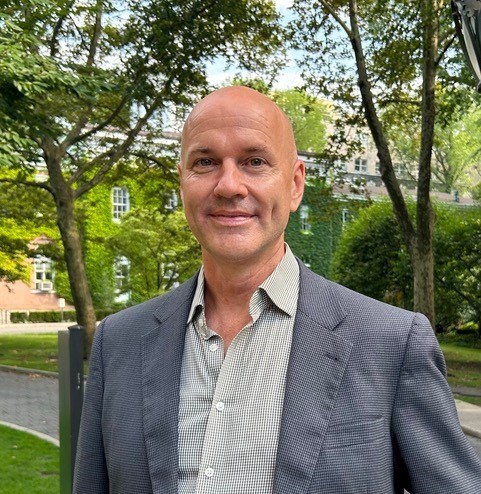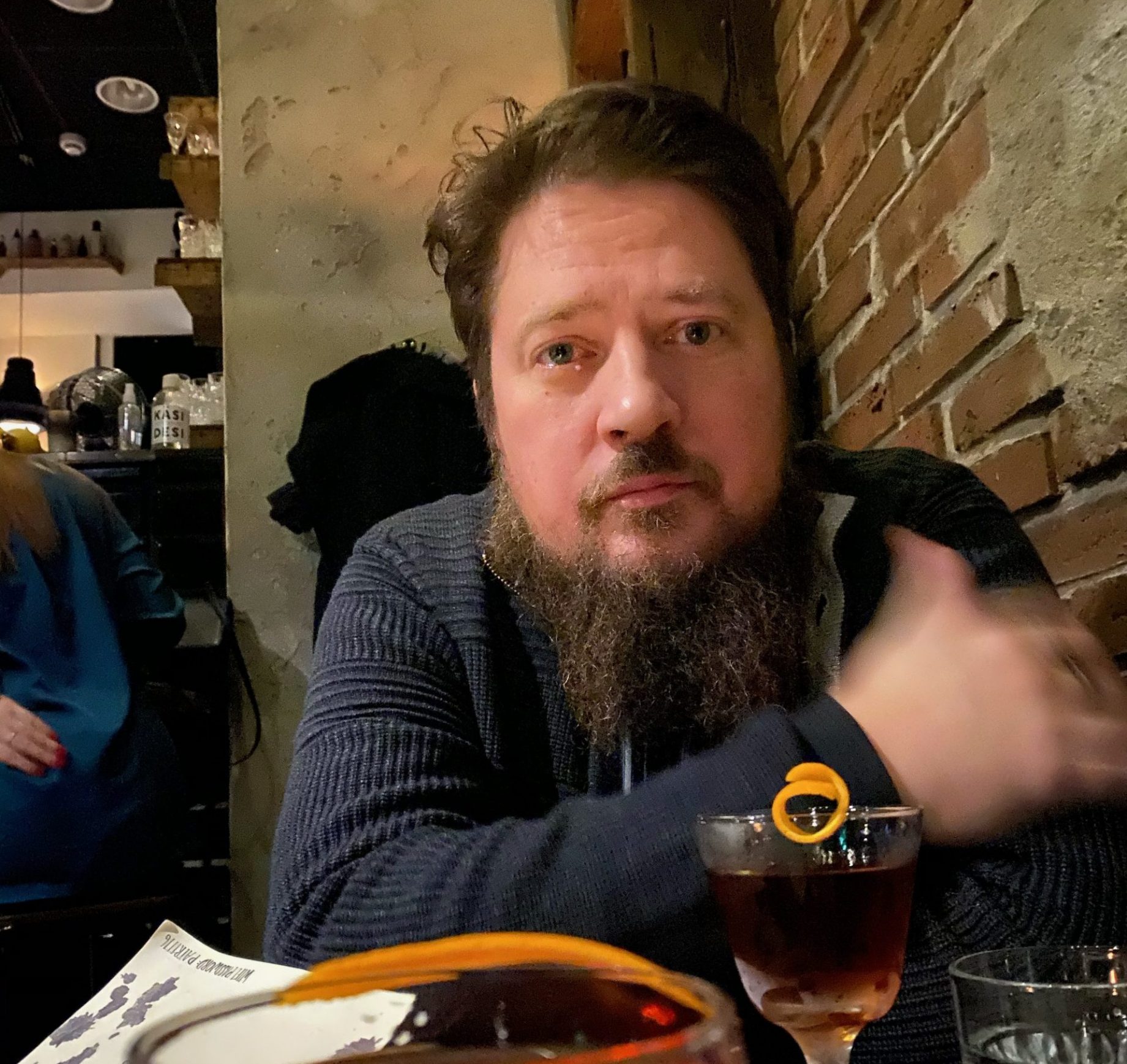Lauren Ross
The Nature of Explanation: An Interdisciplinary Perspective
 Abstract:
Abstract:
The topic of explanation receives significant attention in many fields. Much of this attention is driven by views that explanations provide deep understanding of the world and that they answer “why-questions,” unlike other types of information such as mere descriptions and predictions. Despite the centrality of explanation, there remains significant debate about which models best capture genuine explanations and the hallmark features of explanatory practice. This talk outlines common accounts of explanation and it examines how well they capture a “domain general” notion of explanatory practice. This is used to explore differences and similarities across accounts of explanation, with an aim toward capturing a shared framework for facilitating interdisciplinary discussions.
Stephen Grimm
The Epistemic Goals of the Humanities
 Abstract:
Abstract:
The sciences aim to get at the truth about the nature of the world. Do the humanities have a similar goal–namely, to get at the truth about things like novels, paintings, and historical events? In this talk I consider a few different ways in which the humanities do aim at the truth about their objects, in the process giving rise to epistemic goods such as knowledge and understanding. A work of history (Tyler Stovall’s 1996 book Paris Noir) is used as a test case, to consider the ways in which narrative often plays an essential role in leading us to understanding.
Caterina Marchionni
A Cubist View of Inter-Field Integration: Mechanisms, Explanation and Classification in Psychiatry
 Abstract:
Abstract:
The scientific explanation of complex phenomena faces the challenge of integrating factors of different kinds, sometimes operating at different levels and studied in multiple fields. The question of whether and how to bring together such diverse explanations has a long history in philosophy and in the sciences. The mechanistic approach has been recently hailed as offering a solution to the challenge of inter-field integration. In this talk I evaluate the mechanistic proposal in the context of the explanation and classification of psychiatric disorders. More specifically, I show that the mechanistic approach cannot address the challenge of integrating both variables of different kinds and mechanisms of different kinds, which in turn casts doubt on its potential to provide a foundation for psychiatric classification. The main obstacle, I contend, is represented by variations in styles of mechanistic modelling one finds in the fields concerned with different levels of explanation. I outline an alternative view of explanation and classification of mental disorders, which is still mechanistic in spirit, but does away with a substantive ideal of integration. I call it the cubist view of the unity of science.
Bodo Winter
Interdisciplinarity, the Replication Crisis, and Statistical Rituals
 Abstract:
Abstract:
The 20th century saw a major shift in the way science was conducted, with a dedicated move towards the adoption of statistical methods. When statistical methodology is shared across fields, it has the promising potential to build bridges thanks to a shared methodological foundation. Unfortunately, due to various historical and sociological reasons that I will discuss in my talk, the particular type of statistical methodology that has emerged as dominant over the course of the 20th century is the deeply ritualized tradition of ‘null hypothesis significance testing,’ which despite many calls for replacement has continued to be the status quo in almost all fields, from psychology over linguistics to the ‘hard’ sciences. Since the 2010’s, the replication crisis has shown that no matter the discipline, many studies previously held to be true have failed to replicate when other researchers try to reproduce the results. This has severely undermined public trust in science, and it means that many results we once believed to be true are now uncertain. I will argue that the sociological incentive system surrounding null hypothesis significance testing may have been a major factor in leading us into a replication crisis. A pathway out of deeply ritualized statistical traditions is needed, and I will argue that Bayesian statistics is such a path. I will also highlight how Bayesian philosophy and new advances in statistical methodology also promise to close the gap between quantitative and qualitative research.
Elke Teich
Language Use in Science: Convergence, Diversity, Dynamicity
 Abstract:
Abstract:
Language plays a crucial role in scientific processes as it fulfills the core epistemic functions of denoting and interpreting. As science developed to become an established socio-cultural domain of activity from the 17th century onwards, a specific linguistic code emerged for scientific communication that is characterized by abstractness, technicality, and informational density. While optimizing communication among experts, the specific linguistic properties of scientific language (e.g. complex nominal expressions, implicit logical relations, high lexical density) can hinder communication with non-specialist audiences, learners, and even across disciplines.
Against this background, in my talk I ask to what extent and in which regards scientific language is conducive or inimical to interdisciplinarity. Specifically, I will show results from selected studies highlighting three fundamental aspects of scientific language: convergence, i.e. the tacit agreement to use specific linguistic features rather than others; diversity, i.e. variation in language use according to discipline; and dynamicity, i.e. continuous adaptation and change over time. The studies are empirical using samples of scientific English from contemporary and historical usage, spanning from the mid-17th century to the 21st century. The data were collected from scientific journals, including the Transactions and Proceedings of the Royal Society of London, and compiled into linguistic corpora according to best practices (meta-data, linguistic annotation; Fischer et al., 2020). For analysis, we applied computational language models (statistical models, embeddings), combined with selected exploratory methods (e.g. clustering, classification, (relative) entropy) for evaluating and interpreting model outputs (Bizzoni et al., 2020, Teich et al., 2021). In terms of linguistic theory, we combine a functional approach (Halliday & Martin, 1993; Matthiessen, 2019) with a formal theory of communication based on Shannon’s (1948) information theory, recently widely applied as a linking theory between language and cognition (Crocker et al., 2015; https://sfb1102.uni-saarland.de/).
References:
Bizzoni, Y., Degaetano-Ortlieb, S., Fankhauser, P. and Teich, E. (2020). Linguistic Variation and Change in 250 years of English Scientific Writing: A Data-driven Approach, Frontiers in Artificial Intelligence, Section Language and Computation.
Crocker, M. W., Demberg, V. and Teich, E. (2015). Information Density and Linguistic Encoding (IDeaL), KI – Künstliche Intelligenz 30(1): 77–81.
Fischer, S., Knappen, J., Menzel, K. and Teich, E. (2020). The Royal Society Corpus 6.0: Providing 300+ years of scientific writing for humanistic study, Proceedings of the 12th Language Resources and Evaluation Conference, Marseille, France, pp. 794–802.
Halliday, M.A.K. and Martin, J.R. (1993). Writing Science: Literacy and Discursive Power. Falmer Press, London.
Mikko Tolonen
Interdisciplinarity in Computational Humanities
 Abstract:
Abstract:
Computational humanities is a growing field spanning history, linguistics, and the integration of advanced computational methods into the humanities. This interdisciplinary field operates within the dynamic interplay between traditional humanities research questions and the methodologies of data science. Its goal is to enrich the contexts for interpretation and bridge the gap between quantitative and qualitative research. Effective use of machine learning in this setting necessitates expertise from various fields, extending far beyond interpretative wisdom or coding skills alone. This presentation will examine different elements of computational humanities, particularly focusing on interest of knowledge, prerequisites for successful interdisciplinary collaboration, and the role of leaders in driving interdisciplinarity. We will also discuss practical examples, research group dynamics, infrastructure needs, and methods for measuring success in interdisciplinary projects, as well as researcher assessment in interdisciplinary setting.
Alison McQueen
Text-as-Data in the History of Political Thought
 Abstract:
Abstract:
What, if anything, can computational text analysis contribute to political theory? Computational text analysis has been used by social scientists, literary scholars, and historians. However, political theorists have been reluctant to use these approaches. This talk will explore what political theorists might gain by reaching beyond their disciplinary boundaries and employing computational approaches.
Martti Koskenniemi
Natural Law and the Contest of the Faculties: Remarks on the Genealogies of Legal Modernity
 Abstract:
Abstract:
The talk will examine the uses of the idioms of “natural law” and the “law of nations” and their cognates in order to examine the circuit of disciplinary power in Europe from the early 16th to the late 19th centuries. From an instrument designed to support the teaching of the sacrament of penance to young clerics in Salamanca, those vocabularies came to frame the political counselling of rulers as well as the legal justification of state power in the 17th and 18th centuries. “Natural law” occupied practically the whole field of social and political thought at German enlightenment universities in the 18th century, until Kant and the Kantians lifted it to the higher spheres of philosophy – thus allowing the space earlier taken by that idiom to be occupied with a plethora of novel disciplines in the “cultural” and “social” sciences. By the late-19th century, the contest of the faculties had crystallized into the triad of “law”, “social science” and “economics” – a contest that in various ways continues to this day.
Samuli Reijula
The Division of Cognitive Labor and the Structure of Interdisciplinary Problems
 Abstract:
Abstract:
Interdisciplinarity is strongly promoted in science policy across the world. It is seen as a necessary condition for providing practical solutions to many pressing complex problems for which no single disciplinary approach is adequate alone. In this article we model multi- and interdisciplinary research as an instance of collective problem solving. Our goal is to provide a basic representation of this type of problem solving and chart the epistemic benefits and costs of researchers engaging in different forms of cognitive coordination. Our findings suggest that typical forms of interdisciplinary collaboration are unlikely to find optimal solutions to complex problems within short time frames and can lead to methodological conservatism. This provides some grounds for both reflecting on current science policy and envisioning more effective scientific practices with respect to interdisciplinary problem solving.
Miia Halme-Tuomisaari
Where/What is Knowledge? Interdisciplinarity within Human Rights Research and Beyond
 Abstract:
Abstract:
Human rights are by their nature an interdisciplinary research subject: they exist as well as ideology and ideals as discourse and law. Yet much human rights research has been characterized by disciplinary ‘silos’. In this paper I will reflect on these silos as embodiments of an underlying epistemic question: where /what is knowledge? Focusing in particular on the research traditions of anthropology, international relations and international law, I will discuss the status and importance allotted to ethnographic data versus documents, as well as the relationship between theory and empirical data. I will further consider the significance invested in distinct methodological approaches as well as the influence of inductive versus deductive research designs. Via these reflections I aspire to contribute toward a broader debate on the possibilities, limitations and urgency of inter-disciplinary research. Simultaneously I want to ask: is non-interdiciplinary research truly even possible?
Adrian Blau
The Uncomfortable Interdisciplinarity of Intellectual History
 Abstract:
Abstract:
Intellectual history and the history of political thought are inherently interdisciplinary: interpreting texts like Machiavelli’s Prince or Hobbes’s Leviathan involves a genuine integration of history and philosophy. This integration produces something that is different to pure history or pure philosophy on their own. It is even different to a bi-disciplinary combination of history plus philosophy. However, historians often resist this interdisciplinarity: they typically see themselves as doing history, not philosophy. My paper challenges this view in two main ways. (1) I show that intellectual historians always conduct philosophical analysis, whether they recognise this or not, and even if philosophers usually take this further than historians. (2) I show that the arguments from philosophy of language used by Quentin Skinner to justify historical analysis can equally be used to justify philosophical analysis. It is completely understandable that so many historians resist interdisciplinarity, and that they challenge the unhistorical analysis of many philosophers. But recognising that intellectual history is a symbiosis between history and philosophy would open historians to new sources of evidence, new techniques, and (sometimes) better ways of arguing. It would also make universities a nicer place to work.